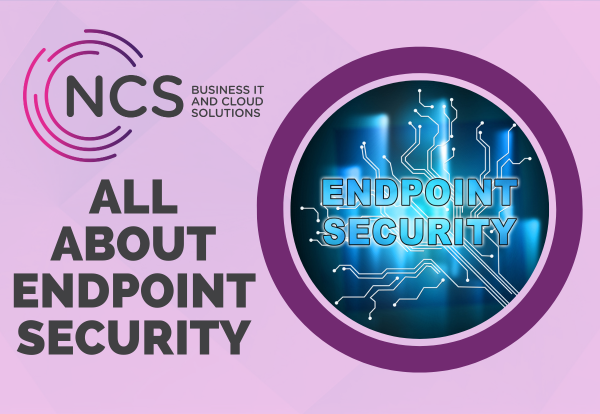All About Endpoint Security
Hackers continue to target endpoints, with research showing that 70% of breaches worldwide originate at an endpoint. Add that to the fact that IT networks have an increasing number – and wider variety – of endpoints, it is more important than ever to ensure your endpoints are secure.
First things first, what are endpoints?
An endpoint is a physical device which connects to, and exchanges information with, an IT network. This could be your desktop computer or laptop, IT hardware such as servers, security devices, Internet of Things devices, and even mobile phones.
What can we do now to secure our endpoints?
- Knowing the endpoints in your network is the first step to endpoint security. Take stock of each of your endpoints and categorise them according to their functions/importance.
- Patches and updates! We always emphasise that security patching and ensuring you install updates as soon as they are available is one of the most important and basic things you can do to improve your IT security and this is true for every single endpoint device you have.
- Encourage the use of Multifactor Authentication (MFA) across your business. MFA significantly reduces the risk of unauthorised access by requiring multiple forms of verification.
- Consider providing cybersecurity training to your staff – your employees are your first line of defence. Regular security awareness training can help them to identify and report potential security threats.
- Establish a clear “bring your own device” (BYOD) policy if you allow employees to use their own computers, smartphones or other devices for work purpose. This could include ensuring the devices are running on the latest operating system and ensuring MFA is enabled for certain applications.
- Audit your employees’ access permissions and review these regularly. Ensure you’re only giving users the access they need to perform their jobs.
What about Endpoint Detection and Response (EDR) solutions?
We recommend EDR solutions as an essential part of your IT security strategy. EDR works well in conjunction with other prevention methods such as firewalls (such as SonicWall) and antivirus to give you an enhanced security provision.
EDR solutions continuously monitor for any suspicious activity at your endpoints, allowing your IT staff (in-house or outsourced managed support) to quickly detect and respond to threats.
If you would like to discuss any of the above solutions, please get in touch with our Sales team on 01706 239000.
Posted in News

